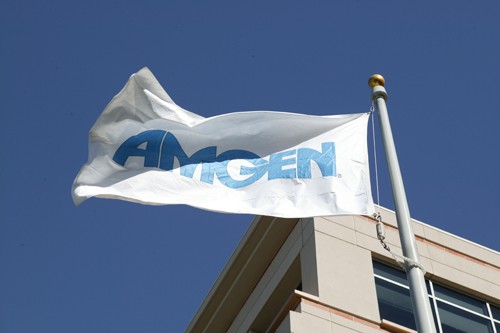
Amgen has been given the go-ahead to sell its acute lymphoblastic leukemia therapy Blincyto in the US, months earlier than expected.
Blincyto (blinatumomab) is the first anti-CD19 drug to be approved by the FDA and is also the lead candidate in Amgen’s bispecific T cell engager (BiTE) antibody programme, which creates drug candidates that work by directing the body’s cell-destroying T lymphocytes to attack malignant cells.
Amgen had suggested that the drug would be approved in early 2015 after the US regulatory granted a priority review to the application in October.
Now – just two months later – blinatumomab has been cleared for Philadelphia chromosome-negative precursor B-cell ALL, an uncommon form of leukaemia for which it was granted breakthrough status by the FDA in September.
The US National Cancer Institute (NCI) estimates that 6,020 Americans will be diagnosed with ALL and 1,440 will die from the disease in 2014.
“Immunotherapies, especially Blincyto with its unique mechanism of action, are particularly promising for patients with leukaemia,” commented Richard Pazdur, director of the FDA’s Office of Hematology and Oncology Products.
“Recognising the potential of this novel therapy, the FDA worked proactively with the sponsor under our breakthrough therapy designation programme to facilitate the approval of this novel agent,” he added.
Blincyto was approved on the back of a study involving 185 B-cell ALL patients who were no longer responding to previous treatments. After receiving Blincyto for at least four weeks via infusion, 32% of patients had no evidence of disease (complete remission), and the median duration of response was 6.7 months.
As a condition of approval, the FDA has asked Amgen to conduct a study to verify that the drug improves survival in B-cell ALL patients.
It has also required a Risk Evaluation and Mitigation Strategy (REMS) to make sure prescribers are aware of the therapy’s side effects, which include problems with low blood pressure, difficulty breathing and central nervous system (CNS) effects, particularly at the start of treatment.
Amgen acquired rights to blinatumomab and other BiTE antibodies when it bought German biotech Micromet for $1.16bn in 2012. Analysts at JP Morgan have predicted blinatumomab could be a $500m-plus product at peak.
Other anti-CD19 therapies in development include Sanofi/Immunogen’s SAR3419 (phase II) and Seattle Genetics’ SGN-CD19A (phase I), both of which are antibody-drug conjugates (ADCs) that combine an anti-CD19 antibody with a cytotoxic payload.




